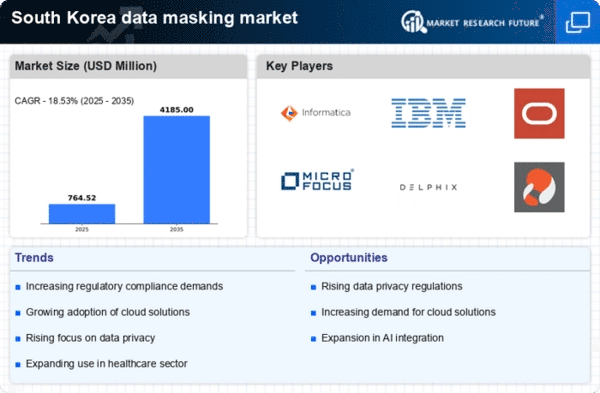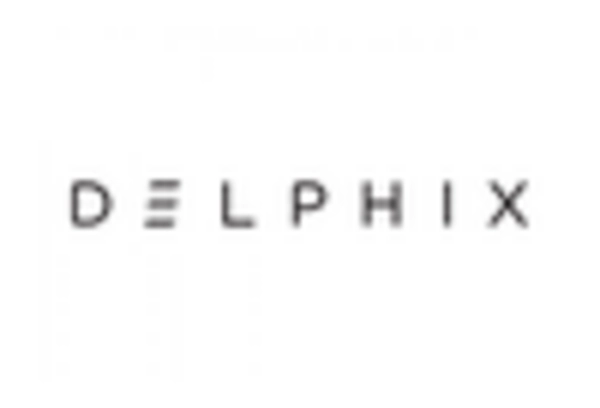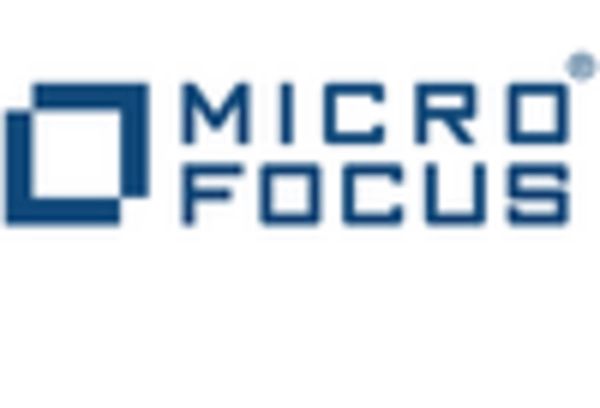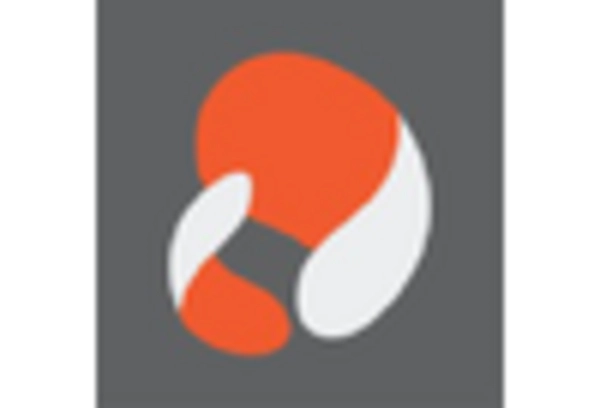Rising Data Breaches
The increasing frequency of data breaches in South Korea has heightened the need for robust data protection measures. Organizations are now more aware of the potential financial and reputational damage that can arise from data leaks. In 2025, the data masking market is projected to grow as companies seek to implement effective data masking solutions to safeguard sensitive information. The South Korean government has also emphasized the importance of data security, leading to a surge in investments in data protection technologies. This trend indicates that businesses are prioritizing data masking as a critical component of their cybersecurity strategies, thereby driving growth in the data masking market.
Growing Cloud Adoption
The shift towards cloud computing in South Korea is influencing the data masking market significantly. As more organizations migrate their operations to the cloud, the need for data protection becomes paramount. Data masking solutions are essential for securing sensitive information stored in cloud environments, as they help mitigate risks associated with data exposure. In 2025, the data masking market is expected to benefit from this trend, with a projected increase in demand for cloud-compatible data masking solutions. This growth reflects the broader trend of digital transformation, where organizations prioritize data security in their cloud strategies.
Evolving Privacy Regulations
The landscape of privacy regulations in South Korea is evolving, with stricter laws being introduced to protect consumer data. The Personal Information Protection Act (PIPA) mandates organizations to implement measures that ensure data privacy, which includes the use of data masking techniques. As compliance becomes increasingly complex, the data masking market is likely to see a rise in demand for solutions that help organizations adhere to these regulations. In 2025, it is estimated that the market will expand as businesses invest in data masking technologies to avoid hefty fines and maintain consumer trust, thus reinforcing the importance of data masking in regulatory compliance.
Increased Focus on Data Analytics
As businesses in South Korea increasingly leverage data analytics for decision-making, the need for data privacy becomes critical. The data masking market is likely to experience growth as organizations seek to analyze sensitive data without compromising privacy. By employing data masking techniques, companies can derive insights from data while ensuring compliance with privacy regulations. In 2025, the market is expected to expand as more organizations recognize the value of data masking in enabling secure data analytics, thus driving demand for innovative solutions that balance data utility and privacy.
Rising Awareness of Cybersecurity
The growing awareness of cybersecurity threats among South Korean businesses is propelling the data masking market forward. Organizations are increasingly recognizing that traditional security measures may not suffice in protecting sensitive information. As a result, there is a shift towards adopting advanced data protection strategies, including data masking. In 2025, the market is projected to grow as companies invest in comprehensive cybersecurity frameworks that incorporate data masking solutions. This trend suggests that businesses are prioritizing proactive measures to safeguard their data, thereby enhancing the overall security posture and driving demand for data masking technologies.
















